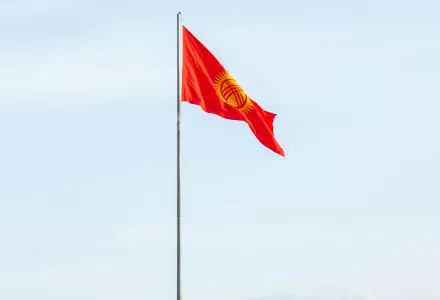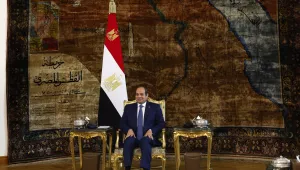
Executive Summary
Kyrgyzstan is currently at a critical geopolitical juncture in which it is forced to
confront its longstanding ties with Russia against a backdrop of internal and external
pressures towards autocracy. Once celebrated as the ‘island of democracy’ in Central
Asia, the small nation faces significant challenges in light of internal authoritarian
tendencies and external pressure following Russia’s full-scale invasion of Ukraine in
February 2022. This report, therefore, examines the role of Kyrgyzstan within the
global democracy versus autocracy debate that has intensified in the past two years
and assesses President Japarov’s neutrality with regards to Russia’s invasion and
Bishkek’s shifting allegiances.
This report relies on a qualitative methodology that builds on field research conducted
in Kyrgyzstan in August 2023. As such, this report incorporates interviews with
Kyrgyz civil society organizations and other stakeholders working on issues
including, but not limited to, democratization, corruption, human rights, media, and
the rule of law. The report presents an in-depth analysis of the Russian influence with
regards to the Kyrgyz political system, civil society, and strategic relationship with
Moscow, underpinned by the historical context of Kyrgyz-Russian relations
Key Findings
- Political System: Kyrgyzstan's political system is inching towards autocracy
under President Japarov and his de facto co-ruler Kamchibek Tashiev at an
alarming rate as evidenced by recent constitutional reforms that further
consolidating power within the presidency. Furthermore, the influence of
Russia's governance model and a growing repression of dissent and criticism
are both particularly prominent driving factors. - Civil Society: The space for civil society in Kyrgyzstan is shrinking which is
driven by routine legislative assaults and government pressure, aspects of
which have been intensified by Russian influence and the broader geopolitical
focus on Ukraine. - Strategic Relationship: Despite efforts to diversify foreign relations,
Kyrgyzstan's relationship with Russia remains dominant, influenced heavily by
economic dependence, military and security provisions, and cultural ties. The
invasion of Ukraine has both highlighted and deepened these ties, even as
Kyrgyzstan explores relations with other global and regional powers.
Policy Recommendations
The geopolitical juncture faced by Kyrgyzstan will significantly shape the future
trajectory of the country and its people. This report's policy recommendations aim to
guide international actors in supporting Kyrgyzstan's pivotal moment to choose a
path aligned with its interests, free from external pressures:
- Direct funding should be increased for human rights, media freedom, and
education to counter negative trends. Such funding must come with stringent
monitoring to avoid fueling corruption. - Greater support for the training and empowerment of civil society leaders, with
an emphasis on multi-year projects, is crucial. - Sanctions should be considered as a deterrence tool to check attempts to pass
legislation that undermines civil society's operating space, ensuring sanctions
are targeted and not counterproductive. - Promote the Kyrgyz language to combat Russian propaganda, specifically
disinformation that affects vulnerable groups, including the LGBTQ+
community. - Development actors must improve strategic communication and advocacy
efforts, using local languages to reach and impact the Kyrgyz society
effectively. - High-level diplomatic engagement with Kyrgyz leaders should be intensified to
encourage partnerships that foster democratic values and strategic
independence.
Wallace, Vladyslav and Alejandro Martín Rodríguez . “Kyrgyzstan in Crisis: A Geopolitical Juncture .” April 29, 2024






